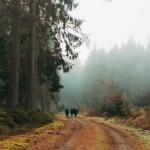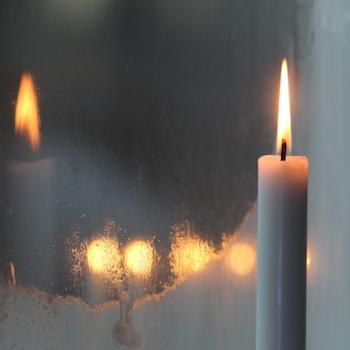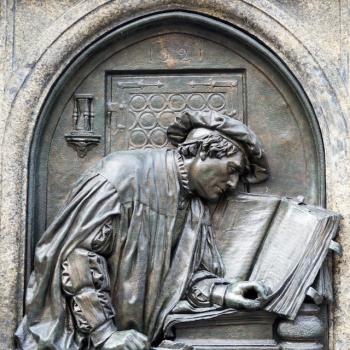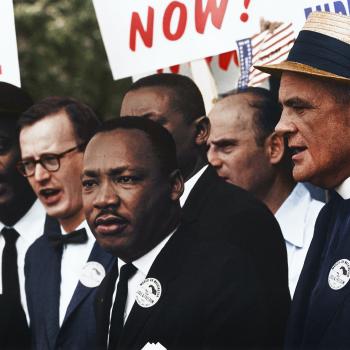Welcome to Always Re-forming. This is a column about faith that forms and re-forms, faith that is always being transformed by the living God whose Spirit breathes in unpredictable ways. I’m glad you’re here.
My name is Liz, and I have no illusions of knowing all the things or having everything together. In this space I’ll explore what I have been learning and continue to learn. I hope something in the journey resonates with you. I hope we can learn and grow together.
By Way of Introduction
I’m a seminary-educated millennial Christian woman with a lot of thoughts about things. My journey has wound its circuitous way through:
- The Seattle area, the San Francisco Bay Area (Palo Alto, East Palo Alto, Sunnyvale), Pasadena (CA), and back to the Seattle area.
- The public school system, Stanford University (BS Symbolic Systems), and Fuller Theological Seminary (MDiv).
- Marriage to my husband Ken and adopting our gorgeous black cat Athena.
- A large mainline Protestant PC(USA) church, an interdenominational evangelical parachurch organization (InterVarsity Christian Fellowship), a nondenominational conservative Bible church, a moderate Presbyterian (ECO) church plant, and a small-medium PC(USA) church in a time of change.
- Working for a health tech start-up, working in parachurch college campus ministry, leading a church-based college ministry, studying in seminary, and now writing, and writing, and writing…
These days I also spend a ton of time reading. Some recent favorites:
- This Here Flesh: Spirituality, Liberation, and the Stories That Make Us by Cole Arthur Riley
- Restoring the Kinship Worldview: Indigenous Voices Introduce 28 Precepts for Rebalancing Life on Planet Earth by Wahinkpe Topa (Four Arrows) and Darcia Narvaez
- The Will to Change: Men, Masculinity, and Love by bell hooks
- Healing Grounds: Climate, Justice, and the Deep Roots of Regenerative Farming by Liz Carlisle
And of course I spend a ton of time writing—if you’re interested, feel free to check out some recent pieces at Feminism & Religion, Word&Way, and Christians for Social Action.
Always Reforming, Always Re-forming
In seminary I learned that some of the leaders of the Protestant Reformation back in the 1500s had this motto: ecclesia reformata semper reformanda—“a reformed church will always be reforming.” As an enneagram type 1 (what some might call “the Perfectionist” but I prefer to call “the Reformer”) who spent eleven years at a conservative evangelical church that was wonderful in some ways but in other ways was very intentionally stuck in the mindset of 1950s white male-dominated evangelical America, hearing this motto was a breath of fresh air.
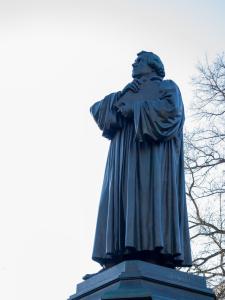
There is freedom to keep reforming. We were always meant to keep reforming.
And not only to keep reforming in the sense of fixing what’s wrong and making ourselves and our communities better—but also re-forming, in the sense of being open and attentive to God’s Spirit in a way that constantly remakes us. Being formed and broken apart and re-formed by God’s life-changing, world-changing love and justice. Being attentive to ourselves and other people and the communities we’re a part of in a way that shapes us and keeps shaping us.
We are being formed; we are being re-formed. It is a never-ending journey, and an amazing one.
Darkness of the Womb
When I think of forming and re-forming, I think of these kinds of questions: Who are we, and who are we becoming? What does it mean to be a person of faith in these times? What does it mean to be a community of faith? Who is the Jesus of the gospel stories? How does this Jesus invite us to live our lives and engage with our world?
We live in a time where much is being unraveled—from personal faith deconstruction, to churches splitting or imploding or quietly fading away, to political structures coming apart at the seams. It is a disorienting time, but also a time of possibility. In her book Hope in the Dark, Rebecca Solnit puts it like this: “The future is dark, with a darkness as much of the womb as the grave.”
The darkness of the womb. Things are dying, and things are being reborn. We get to explore together what is being born: what the loving God who made and holds the universe is birthing.
When everything is coming apart, we have the opportunity to rebuild—to re-form. To build using different tools (borrowing a metaphor from Audre Lorde, who wrote that “the master’s tools will never dismantle the master’s house”). We have the opportunity to build something better.
My hope is that this column will contribute to that building, that reforming and forming and re-forming, in some way. I look forward to sharing this space together—to seeing what is built.


